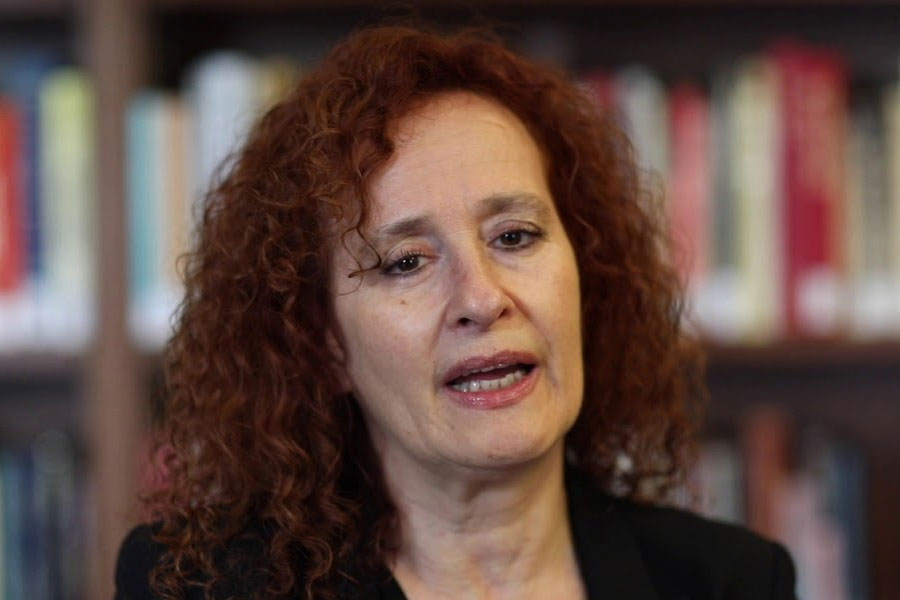
In-Picture | Jul 08,2024
Jul 17 , 2022
By Eden Sahle
Over the past few weeks, I met several university students desperate for a good internship opportunity. Serving in an internship role for a semester is necessary to graduate from most undergraduate programmes in Ethiopia. The problem was not finding an institution that would give them the position and sign a piece of paper that says they participated. The headache is finding a place, especially in the public sector, that takes internships seriously and helps them prepare for the labour market.
Public sector institutions have no problem writing the students glowing recommendations for their respective universities. They cannot, nonetheless, be bothered to give them anything to do during the internship. Institutions are telling students they have no work for them and that they do not need to come in daily. They are informed they can just come to collect their recommendation letter at the end of the internship period. When students insist on coming, they are kept idle and sit the entire day hearing the personal chitchat of the public servants.
Meanwhile, these same institutions take customers’ time for several days only to direct one letter from one department to another.
Persons who are supposed to mentor and encourage the next generation are passing on their inefficiencies and carelessness under the witness of the observing public. They are teaching them to do the bare minimum to get salaries at the end of the month. It is a tragedy.
The students are perceived as threats. The public servants seem to believe that any increase in productivity will be left to them to make up for once the students leave. They are not ashamed to say that the young students are ruining their comfortable and pressureless work style by actively engaging at work and serving clients swiftly. They worry the students can replace them.
This problem is not only faced by students. Fresh graduates that enter the workforce have similar stories to tell. Many in the job sector have passed through this challenge that denied them the opportunity to offer their skills and prepare for their careers. Every student strives to get an internship opportunity in the private sector because that is where they have a higher chance of being allowed to be productive.
Our public institutions lack the understanding that higher education internships aim to prepare students to succeed in their future careers and test their skills. They fail to grasp that these students have a certain level of academic knowledge and creativity that provide value to institutions.
The developed nations’ colleges and universities prioritise this type of learning, requiring all students to partake in internship work experience because of its various benefits. For Ethiopia, many public hospitals and most private sectors are great local examples proving how invaluable the hands-on experience is, allowing interns to put theory to practice.
This experiential learning is a great way to get a taste of the professional experience in a particular field. It is an excellent approach to helping students forge important professional lessons and connections before graduation. Unlike how it’s undermined in Ethiopia, an internship is a stepping stone to additional opportunities. It helps them gain real experience that can give them a competitive advantage as they pursue a permanent position.
Many private organisations use these internship opportunities to hunt for potential employees. Internships allow employers time to assess a student for competency, drive, and commitment. Employers I know say that most of the best talent they recruited was through internship programmes.
Young students often offer fresh eyes and an unparalleled enthusiasm for the task they are given. They can happily take on the tasks existing employees do not necessarily want to do. They bring to the organisation new perspectives, energy, and specialised skill.
If anyone doubts that university students have nothing to offer, think again. Last week, I came across a project by a student who created functional software and automated teller machine (ATM) technology that the commercial banks have spent millions of dollars buying from developed countries.
How can any organisation receive such talent for free or almost free and dare to waste it?
Those of us already in the labour force are responsible for offering interns an opportunity so that they can contribute to healing the nation’s severe skills gap and exacerbating youth unemployment. Solving Ethiopia’s economic and political crisis requires bringing fresh perspectives from the young that are coming with new understanding and solutions.
Maybe in their long daily closed meetings, public servants should admit that customers are not complaining for no reason. It would not hurt them to give interns the benefit of the doubt and receive their support to transform public institutions’ way of conducting work.
PUBLISHED ON
Jul 17,2022 [ VOL
23 , NO
1159]

In-Picture | Jul 08,2024

Radar | Nov 16,2024

Delicate Number | Nov 12,2022

Radar | Jan 01,2023

Verbatim | Nov 12,2022

Fortune News | Oct 21,2023

Fortune News | Oct 15,2022

Agenda | Aug 26,2023

Featured | Sep 13,2022

Radar | Aug 13,2022

Photo Gallery | 175295 Views | May 06,2019

Photo Gallery | 165519 Views | Apr 26,2019

Photo Gallery | 155834 Views | Oct 06,2021

My Opinion | 136797 Views | Aug 14,2021

Dec 22 , 2024 . By TIZITA SHEWAFERAW
Charged with transforming colossal state-owned enterprises into modern and competitiv...

Aug 18 , 2024 . By AKSAH ITALO
Although predictable Yonas Zerihun's job in the ride-hailing service is not immune to...

Jul 28 , 2024 . By TIZITA SHEWAFERAW
Unhabitual, perhaps too many, Samuel Gebreyohannes, 38, used to occasionally enjoy a couple of beers at breakfast. However, he recently swit...

Jul 13 , 2024 . By AKSAH ITALO
Investors who rely on tractors, trucks, and field vehicles for commuting, transporting commodities, and f...

Oct 18 , 2025
The political establishment, notably the ruling party and its top brass, has become p...

Oct 11 , 2025
Ladislas Farago, a roving Associated Press (AP) correspondent, arrived in Ethiopia in...

Oct 4 , 2025
Eyob Tekalegn (PhD) had been in the Governor's chair for only weeks when, on Septembe...

Sep 27 , 2025
Four years into an experiment with “shock therapy” in education, the national moo...

Oct 18 , 2025 . By NAHOM AYELE
In a sweeping reform that upends nearly a decade of uniform health insurance contribu...

Oct 18 , 2025 . By BEZAWIT HULUAGER
A bill that could transform the nutritional state sits in a limbo, even as the countr...

Oct 18 , 2025 . By SURAFEL MULUGETA
A long-planned directive to curb carbon emissions from fossil-fuel-powered vehicles h...

Oct 18 , 2025 . By BEZAWIT HULUAGER
Transaction advisors working with companies that hold over a quarter of a billion Bir...